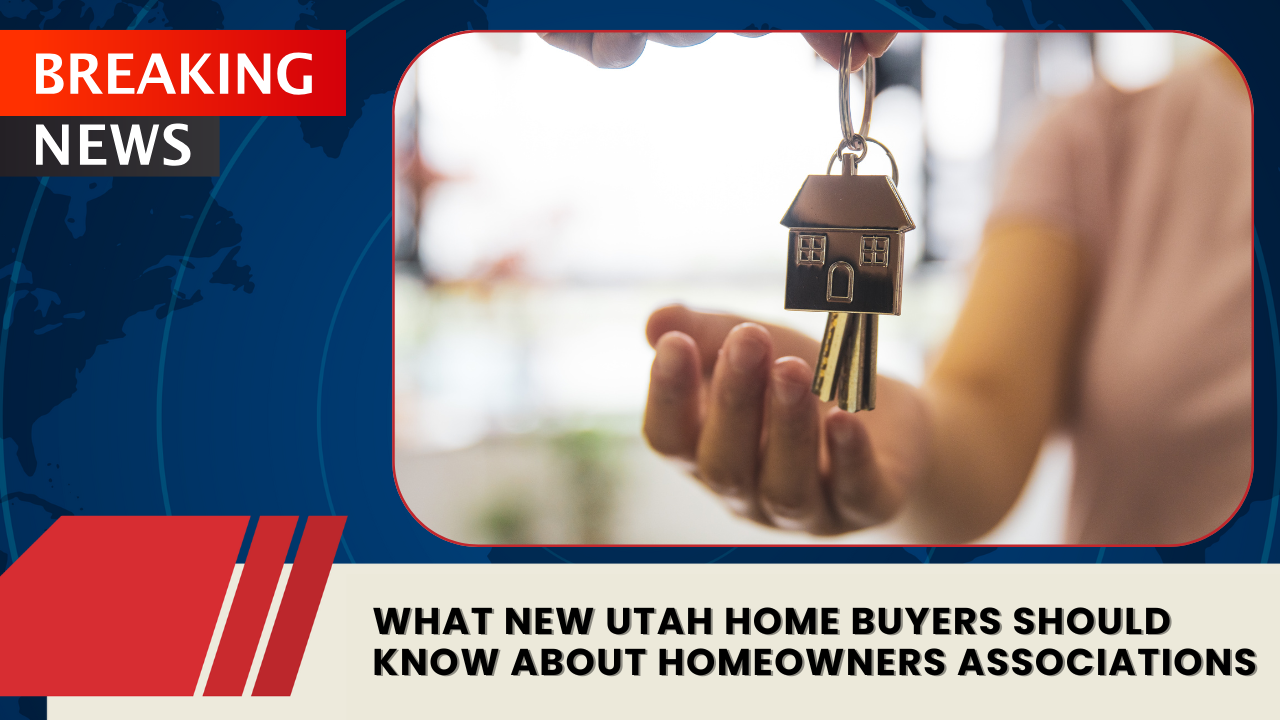SALT LAKE CITY — As Utah’s population continues to rise, new housing developments are appearing across the state — and with them, more Homeowners Associations (HOAs). For anyone planning to buy a home in one of these communities, understanding how HOAs work is essential before signing on the dotted line.
According to Erin Rider, Director of the Utah Department of Commerce’s HOA Ombudsman Office, doing your research ahead of time can save major headaches later. “You have to do your due diligence on the entire community, not just the property you’re buying,” Rider explained. “For example, are you purchasing the entire lot — including the yard — or just the land where the home sits? That detail determines how much control the HOA has over what you can and can’t do with your property.”
Many Utah buyers don’t realize that HOAs come with specific governing documents that spell out the rules, financial responsibilities, and homeowner rights within the community. These typically include:
- CC&Rs (Covenants, Conditions, and Restrictions) – outlining what’s allowed or prohibited
- Rules and Regulations – day-to-day guidelines for residents
- Bylaws – defining how the HOA operates and how decisions are made
Rider strongly advises reading these documents before closing on a home. “It might save you a future headache to understand what the rules are before you get there,” she said.
Beyond the rules, financial transparency is another critical piece. “Ask about the financial state of the HOA,” Rider recommended. “How much do they have in reserves? When was the last time they issued a special assessment? Are there any planned in the near future? What are the current fees, and do they expect to raise them?”
These fees can add hundreds of dollars per month to housing costs — a “hidden expense” many new buyers overlook.
The HOA Ombudsman Office was created to improve communication and accountability between homeowners and their association boards. Rider suggests looking into an HOA’s legal and operational history before buying in. “Find out if the HOA has had any lawsuits recently,” she said. “Check what the issues were and how they were resolved. That tells you a lot about how the community handles disputes.”
Once you move in, participation is key. Attending regular HOA meetings gives you a voice in how community rules and fees evolve. “The more involved you are, the more influence you have over your neighborhood,” Rider emphasized.
The Ombudsman Office also offers training sessions for both homeowners and HOA boards to help them understand Utah’s HOA laws and governing documents. “If a group of homeowners wants a training on how to understand governing documents, we can do that,” Rider added. “If a board wants to know its rights and responsibilities under state law, we can help with that too.”
Homeowners who believe their HOA has violated state law can contact the Utah Department of Commerce’s HOA Ombudsman Office by phone or through its official website for guidance and dispute resolution options.



